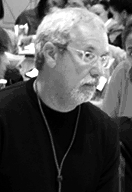 |
| Sam Piha |
It is important that we consider the impact of these events on our staff as well as our youth, and that staff are well-equipped to address the issues if they choose to engage youth. In a subsequent blog post, the LIAS project will offer our own response.
We reached out to some of our colleagues to respond to a question regarding the role of afterschool and summer youth programs in responding to this unspeakable violence. Below are some of their responses.
Q: Young people are directly exposed to violence in their community, experience the threat of violence and/or bear witness to horrific violence via social media. Do you believe that afterschool and summer youth programs should, in some way, help young people process their experiences?
 |
| Dr. Pedro Noguera, UCLA |
 |
| Gina Warner, National AfterSchool Association |
To all who work in this field, our answer is this: Keep doing what you are doing. Keep teaching children that love is greater than hate. Help them understand that violence is never an answer. Teach them to build bridges, not walls. Teach them to love and respect every single person. And above all, keep up the laser focus on developing their skills to acknowledge and manage feelings and use communication, compassion and curiosity to work through adversity.To read more, click here.
 |
| Dr. Gil Noam, PEAR at Harvard University |
As with any political matter, opinions will vary and there will have to be room for those students who think differently, or don’t want to engage at all. Afterschool and summer programs are not places for indoctrination, but for dialogue, the emergence of diverse opinions in a civic and democratic process in small communities of learning. So there is the issue of reducing trauma and secondary trauma which is best done through a focus on safety and belonging, not necessarily through deep discussions that can arouse more fear.
And then there is the issue of thinking about racial inequities and the social fabric of our country. Current events should lead us to strengthen both strands. Trauma sensitivity training can help in regard to the first (the PEAR Institute at Harvard can help with that). Simultaneously, we should think about how to increase the dialogue about social and racial equity in all parts of our lives. But that cannot be done without strong parent and community involvement and needs to be respectful of all and stay away from pushing an agenda that would undermine a pluralistic approach to all voices of staff, students and parents. Better for programs not to rush into this, but to be deliberate and planful.
Unfortunately, those problems will stay with us for a while. And the opportunities for afterschool and summer programs are great.
 |
| Joe Hudson, Region 4 Regional Lead |
I contend that providing youth opportunities express their feelings and thoughts, fears and hopes, in safe and constructive manners which is age appropriate, and can be facilitated during after school and/or summer programs. However, I feel it’s best done not as stand-alone activities in response to the crises of the day but rather integrated into high quality arts, music literacy, math and other learning activities with appropriate time provided for large and small group discussions including current events. I also support facilitated community meetings to hear from other stakeholders including parents and to share with them approaches being considered to promote a safe and positive learning environment, which acknowledges current challenges and takes constructive action to promote the heathy social and emotional welfare of youth.
I’m obliged to caution programs that we must also take care to assess and address “Vicarious Trauma” among the youth workers and other staff undertaking this type of transformative work with youth. Every time we interact from a position of compassion, controlling our empathic response with our clients, colleagues, friends or strangers, we are putting ourselves at risk. Vicarious Trauma is what happens to your neurological (or cognitive), physical, psychological, emotional and spiritual health when you listen to traumatic stories day after day or respond to traumatic situations while having to control your reaction.
 |
| Jodi Grant, Afterschool Alliance |
 |
| Lucy Friedman, ExpandED Schools |
Resources recommended by ExpandED Schools:
- Oakland Public Library - Talking to Kids About Racism and Justice: a list for parents, caregivers & educators
- Child Development Institute - How to Talk to Kids About Tragedies in the Media
- Child Mind Institute - Helping Children Cope with Frightening News
- Kidpower - Helping Children Regain Their Emotional Safety After a Tragedy
- Teaching Tolerance - Teaching About Race, Racism and Police Violence
- Morningside Center for Teaching Social Responsibility - Teaching about Controversial or Difficult Issues
- Parent Toolkit - How to Talk to Your Kids About Shootings and Terror
- PBS Parents - Talking to Kids About News
- Stonehill College - Teaching about Race and Criminal Justice




No comments:
Post a Comment